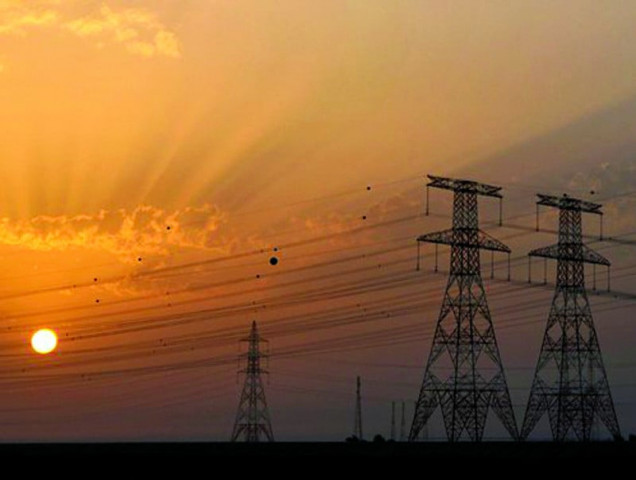ECC approves Rs303b extra budget
It will cover cost of reduction in electricity and oil prices, Ramazan package

The government on Monday approved Rs303 billion in supplementary budget to pay for the cost of temporary reduction in electricity and petroleum prices, its expensive loan venture and Ramazan relief package.
The Economic Coordination Committee (ECC) of the cabinet approved the reduction in electricity prices by Rs5 per unit for four months for the consumers using 101 to 700 units per month.
However, it excluded those domestic consumers who consumed less than 100 units or pay peak and off-peak rates, which were already double than the cost of generation.
The ECC approved the PM’s relief package of Rs5 per unit by way of reduction in the base rate of electricity for a period of four months (March-June 2022).
The relief package will be applicable to all commercial and domestic non-ToU (Time of Use) consumers having monthly consumption of up to 700 units, excluding the lifeline consumers, according to a statement issued by the Ministry of Finance.
“The cash flow requirement for the PM relief package is Rs136 billion,” it added.
Sources said that some of the meeting participants opposed the decision to provide relief in the fuel price adjustment cost and to the commercial consumers of above 5kV (kilovolt) connections.
They also highlighted the adverse impact of the relief package on the International Monetary Fund (IMF) programme.
The government will bear an impact of Rs29.4 billion in March, Rs31.8 billion in April, Rs34.7 billion in May and Rs40.2 billion in June. These numbers are inclusive of the impact of fuel price adjustment.
The fuel price adjustment for January 2022 to be recovered in March is expected to the tune of Rs5.95 per unit, which is required to be capped at Rs3.1 per unit and will eventually result in a subsidy requirement of Rs2.86 per unit. Any delay by the finance ministry in making these payments may further complicate the financial position of power generating companies that are already waiting for Rs1.428 trillion in outstanding payments from the government.
The ECC meeting was held when the international crude oil prices peaked at $128 per barrel - the highest since 2008 - on fears of a ban on Russian oil exports.
The ECC also approved Rs135.1 billion for principal and interest payments against the Naya Pakistan Certificates and Islamic Naya Pakistan Certificates, said the finance ministry.
The Pakistan Tehreek-e-Insaf (PTI) government also introduced the most expensive debt instrument - the Naya Pakistan Certificate - that it is using to take loans at 7% in dollar terms and at 11% in rupee terms from the overseas Pakistanis.
The ECC approved a Rs20 billion subsidy to pay for price differential claims of oil marketing companies (OMCs), being affected by the PM’s decision to reduce petroleum prices.
The finance ministry stated that the Petroleum Division submitted a summary on the reimbursement of price differential claims of OMCs and refineries, in line with the PM relief package for the reduction in consumer prices of motor spirit and diesel by Rs10 per litre.
The price differential claims would be paid to the OMCs and refineries as a subsidy to avert any shortage in the market.
“The ECC approved a special PDC (price differential claim) disbursement mechanism to pay the PDC speedily within 15 days, open a special assignment account with PSO (Pakistan State Oil) with initial amount of Rs20 billion for PSO in accordance with the mechanism”.
The ECC approved the Kamyab Overseas Programme as a new component of the Kamyab Pakistan Programme.
The new initiative is meant for the prospective low-income overseas workers having confirmed foreign job offer, employment agreement, valid travel documents and registered with the National Socio-Economic Registry (NSER) to avail interest-free loans under the Kamyab Pakistan Programme (KPP).
The finance ministry said that the maximum amount of loan would be Rs300,000 and it would be returned in easy installments starting after three months of departure.
The loan will be provided to 10,180 beneficiaries with estimated required funds of Rs3 billion for the fourth quarter of 2021-22, it added.
The ECC also approved the Ramazan relief package 2022 with a subsidy of Rs8.2 billion. However, unlike the past, the subsidy will only be given to those people who are in the Benazir Income Support Programme (BISP) database. Interestingly, the Utility Stores Corporation does not have a real-time mechanism to determine the eligibility of a beneficiary.
The finance ministry said that the subsidy would be given on 19 essential items.
The ECC approved a summary presented by the Ministry of Commerce for the proposed amendments in the Import and Export Policy Order 2020 for the development of Integrated Tariff Management System (ITMS) for Pakistan Single Window (PSW).
The Ministry of Energy (Petroleum Division) submitted a summary, seeking amendments to the petroleum concession agreements to allow GHPL to increase its working interest in Wali, Jandran West, Saruna and Pesu blocks of Oil and Gas Development Company (OGDCL).
Published in The Express Tribune, March 8th, 2022.
Like Business on Facebook, follow @TribuneBiz on Twitter to stay informed and join in the conversation.



















COMMENTS
Comments are moderated and generally will be posted if they are on-topic and not abusive.
For more information, please see our Comments FAQ